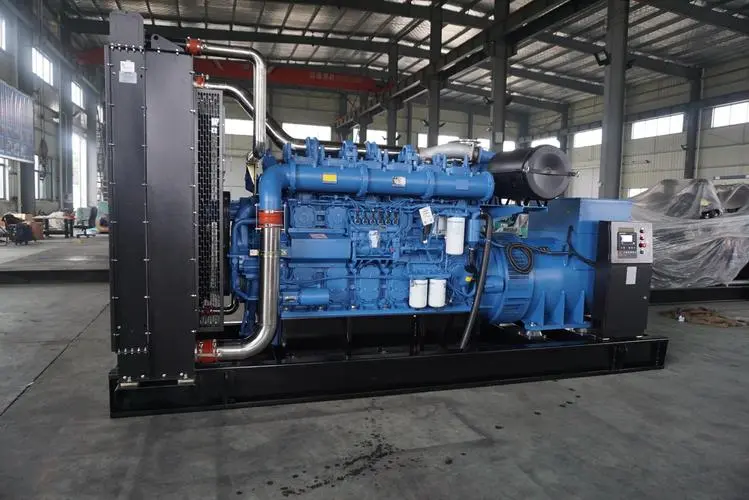Introduction
In recent years, the demand for reliable and sustainable energy storage solutions has been on the rise. With the increasing penetration of renewable energy sources like solar and wind power, there is a growing need for storage systems that can store and deliver electricity when it is most needed. One such technology that has gained prominence in the energy storage sector is diesel generators. In this article, we will explore the role of diesel generators in energy storage systems, their benefits, challenges, and future prospects.
1. Overview of Energy Storage Systems
Energy storage systems play a crucial role in modern power grids by helping to balance supply and demand, stabilize the grid, and provide backup power during emergencies. These systems store excess electricity when generation exceeds demand and discharge it when demand exceeds generation. There are 600kw generator of energy storage technologies available, including batteries, pumped hydro storage, flywheels, and thermal storage systems. Each technology has its own unique characteristics and applications.
2. Role of Diesel Generators in Energy Storage Systems
Diesel generators are a type of internal combustion engine that uses diesel fuel to generate electricity. While traditionally used as backup power sources in off-grid or remote locations, diesel generators are now being integrated into energy storage systems to provide additional flexibility and reliability. In energy storage applications, diesel generators can be used to provide backup power during periods of low renewable energy generation or as a primary power source in hybrid systems.
3. Benefits of Using Diesel Generators in Energy Storage Systems
There are several benefits to using diesel generators in energy storage systems, including:
a. Reliability: Diesel generators are known for their reliability and can provide backup power in case of grid outages or fluctuations in renewable energy generation.
b. Flexibility: Diesel generators can be easily integrated into existing energy storage systems and can be deployed quickly to meet changing energy demands.
c. Energy Independence: By using diesel generators in energy storage systems, users can reduce their reliance on the grid and have a reliable source of power even in remote locations.

d. Cost-Effectiveness: Diesel generators can be a cost-effective solution for providing backup power compared to other energy storage technologies.
4. Challenges of Using Diesel Generators in Energy Storage Systems
While diesel generators offer several benefits, there are also some challenges associated with their use in energy storage systems, including:
a. Environmental Impact: Diesel generators emit greenhouse gases and other pollutants that can contribute to air pollution and climate change.
b. Fuel Availability: Diesel fuel availability can be a concern in remote locations or during emergencies, which can affect the reliability of diesel generators.
c. Maintenance Requirements: Diesel generators require regular maintenance and servicing to ensure optimal performance, which can add to the overall operating costs.
d. Noise and Emissions: Diesel generators are known for their noise and emissions, which can be a concern in residential areas or environmentally sensitive locations.
5. Integration of Diesel Generators with Other Energy Storage Technologies
To overcome the challenges associated with diesel generators, they can be integrated with other energy storage technologies to create hybrid systems. For example, diesel generators can be combined with battery storage systems to provide a more reliable and sustainable energy storage solution. The batteries can be used to store excess electricity from renewable sources and provide power during peak demand periods, while the diesel generators can be used as a backup power source during extended periods of low renewable energy generation.
6. Future Prospects of Diesel Generators in Energy Storage Systems
Despite the challenges, diesel generators are expected to play a significant role in energy storage systems in the coming years. With advancements in engine technology and emissions control systems, diesel generators are becoming more efficient and environmentally friendly. Additionally, the integration of diesel generators with renewable energy sources like solar and wind power can help to create more resilient and sustainable energy storage systems.
Conclusion
Diesel generators are a versatile and reliable power source that can be effectively integrated into energy storage systems to provide backup power and enhance grid stability. While there are challenges associated with their use, advancements in technology and increasing awareness of environmental issues are driving the development of more efficient and sustainable diesel generators. By leveraging the benefits of diesel generators and integrating them with other energy storage technologies, we can create a more resilient and sustainable energy storage infrastructure for the future.
